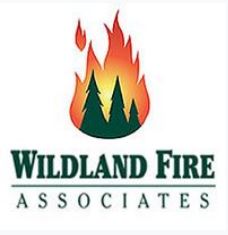 Under contract with the Bureau of Reclamation, WFA has just completed the first Comprehensive Fire Management & Law Enforcement Strategy for federal, state and private lands. WFA worked with site managers on seven specific areas where the Bureau of Reclamation has completed habitat restoration projects to develop one comprehensive fire management and law enforcement document for the Lower Colorado River Multi-Species Conservation Program (LCR MSCP), as well as site-specific plans for each of the seven conservation areas. Each plan addressed:
Under contract with the Bureau of Reclamation, WFA has just completed the first Comprehensive Fire Management & Law Enforcement Strategy for federal, state and private lands. WFA worked with site managers on seven specific areas where the Bureau of Reclamation has completed habitat restoration projects to develop one comprehensive fire management and law enforcement document for the Lower Colorado River Multi-Species Conservation Program (LCR MSCP), as well as site-specific plans for each of the seven conservation areas. Each plan addressed:
- general wildland fire management principals and those unique to southwestern habitats,
- fire management protocols, strategies, tactics and infrastructure already established for each area, as well as identification of prevention measures,
- wildland fire suppression tactics appropriate within each habitat, and potential emergency stabilization and rehabilitation techniques for each of the conservation areas,
- wildland fire risk for each conservation area based upon current accepted standards for the region,
- comprehensive fire ecology and fire effects specific to each area, including the potential use of prescribed fire and other tools available to meet management objectives and
- how to develop management objectives consistent with the land owner’s goals, management objectives and accepted practices, while protecting species of concern.
- general law enforcement principles, techniques, special considerations, and proactive measures that can be applied to each conservation area. Jurisdictional issues and identification of existing law enforcement procedures for the LCR MSCP and specific conservation areas were also clearly identified.
- identifying existing wildland fire and law enforcement agency contacts, fire suppression access routes, wildland fire management and law enforcement plans, and local hospital information in relation to each conservation area.
WFA also provided generalized consulting in the areas of wildland fire management and law enforcement to assist each conservation area with operational protocols.
- wildland fire risk for each conservation area based upon current accepted standards for the region,
- comprehensive fire ecology and fire effects specific to each area, including the potential use of prescribed fire and other tools available to meet management objectives and
- how to develop management objectives consistent with the land owner’s goals, management objectives and accepted practices, while protecting species of concern.
- general law enforcement principles, techniques, special considerations, and proactive measures that can be applied to each conservation area. Jurisdictional issues and identification of existing law enforcement procedures for the LCR MSCP and specific conservation areas were also clearly identified.
- identifying existing wildland fire and law enforcement agency contacts, fire suppression access routes, wildland fire management and law enforcement plans, and local hospital information in relation to each conservation area.
